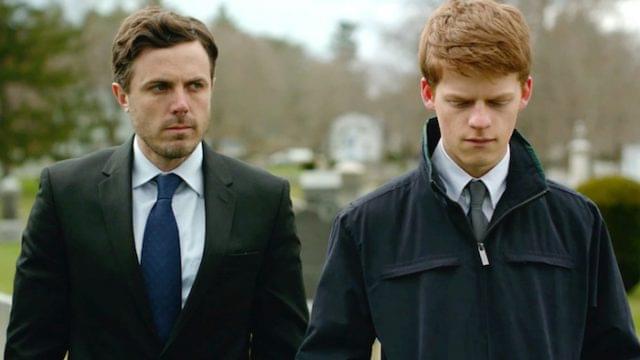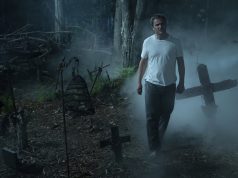
Some movies are about people being broken by tragedy and finding a way to carry on. “Manchester by the Sea” is about someone who was broken several years ago, who is now prompted by new circumstances to finally look into the possibility of fixing himself. The first cosmic kick in the face didn’t do the trick; maybe the second one will.
This sensitive and surprisingly funny drama by writer-director Kenneth Lonergan (“You Can Count on Me”) is full of well-drawn characters who seem to have complete histories behind them, who existed before the movie and will exist after it ends (well, except the ones who die, but you know what I mean). Longergan captures the natural rhythms of Massachusetts dialogue — the word “retahded” appears more than once — but more than that, he creates authentic people with relatable emotions. And I say this as someone who has been in almost none of the situations that our sad-sack hero finds himself in.
That’d be Lee Chandler (Casey Affleck), a maintenance man at a Quincy (pronounced “Quinzy”) apartment complex who seems to have given up on life before we met him. He trudges from task to task, not tolerating the tenants’ testiness, making no effort to whistle while he works. Lee is torn from this dazed, surly existence by the news that his brother, Joe (Kyle Chandler), has died back in their hometown of Manchester, Mass., leaving his 16-year-old son, Patrick (Lucas Hedges), in Lee’s care.
Lee doesn’t want the responsibility, but this is not an indie drama about a directionless man-child who’s forced to grow up. Lee has valid reasons for being reluctant to be his nephew’s guardian, which we come to understand through flashbacks to several years earlier, when Lee was married (to Michelle Williams) with children of his own. These flashbacks usually arrive un-signaled, the momentary disorientation reflecting Lee’s foggy state of mind as he drifts between past and present. This is a guy who was already devastated, who had barely cleared away the rubble before the next bomb fell.
But he takes custody of Patrick for now, temporarily moving into the family house while he handles funeral arrangements and looks for a long-term solution. (He asks a family friend, “Do you wanna be his guardian?” The friend, who has teenagers of his own, demurs: “We’re tryin’ to lose some kids at this point.”) Flashbacks tell us more about Lee and Joe’s relationship as brothers, about why Joe’s ex-wife and Patrick’s mom (Gretchen Mol) isn’t an option, about what happened to Lee and his own family. Each new detail adds insight to our understanding of Lee, whose man-of-few-words stoicism makes him hard for the people in his life to fathom.
His nephew is much easier to read. Maybe it’s a generational thing, but Patrick is openly emotional about losing his father, able to talk to his buddies about it, and capable, even in his grief, of playing in a band and stringing along two separate girlfriends who don’t know about each other. (Lonergan excels at showing the everyday humor that arises naturally even in un-humorous situations.) Where Lee’s life came to a standstill when tragedy struck, Patrick is continuing to live his. Affleck and Hedges’ rich, authentic performances, different but complementary — one acts on the inside, one on the outside — draw the relationship between the characters into sharp focus, letting us see how that relationship changes over the course of the film.
True to form, Lonergan doesn’t give pat answers or platitudes. There are no big speeches in the dialogue. This is not a treatise on How to Deal with Grief; if you asked Lonergan for advice on the subject, I suspect his answer would be, “Hell, I don’t know.” But the film’s point isn’t to wallow in sorrow, either. It’s to show that we can get through it, even if the process is long, messy, and inexplicable.
B+ (2 hrs., 17 min.; )





